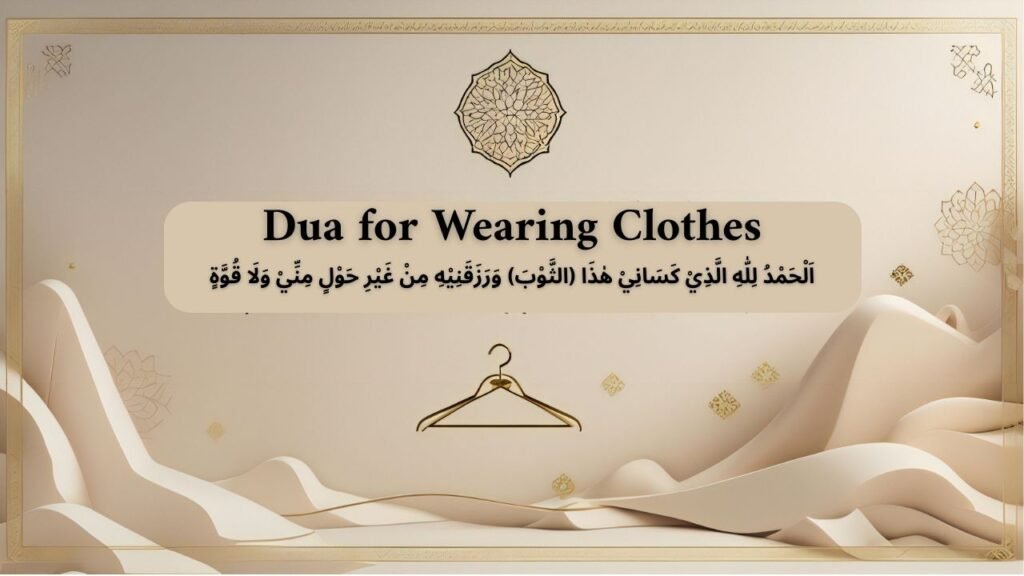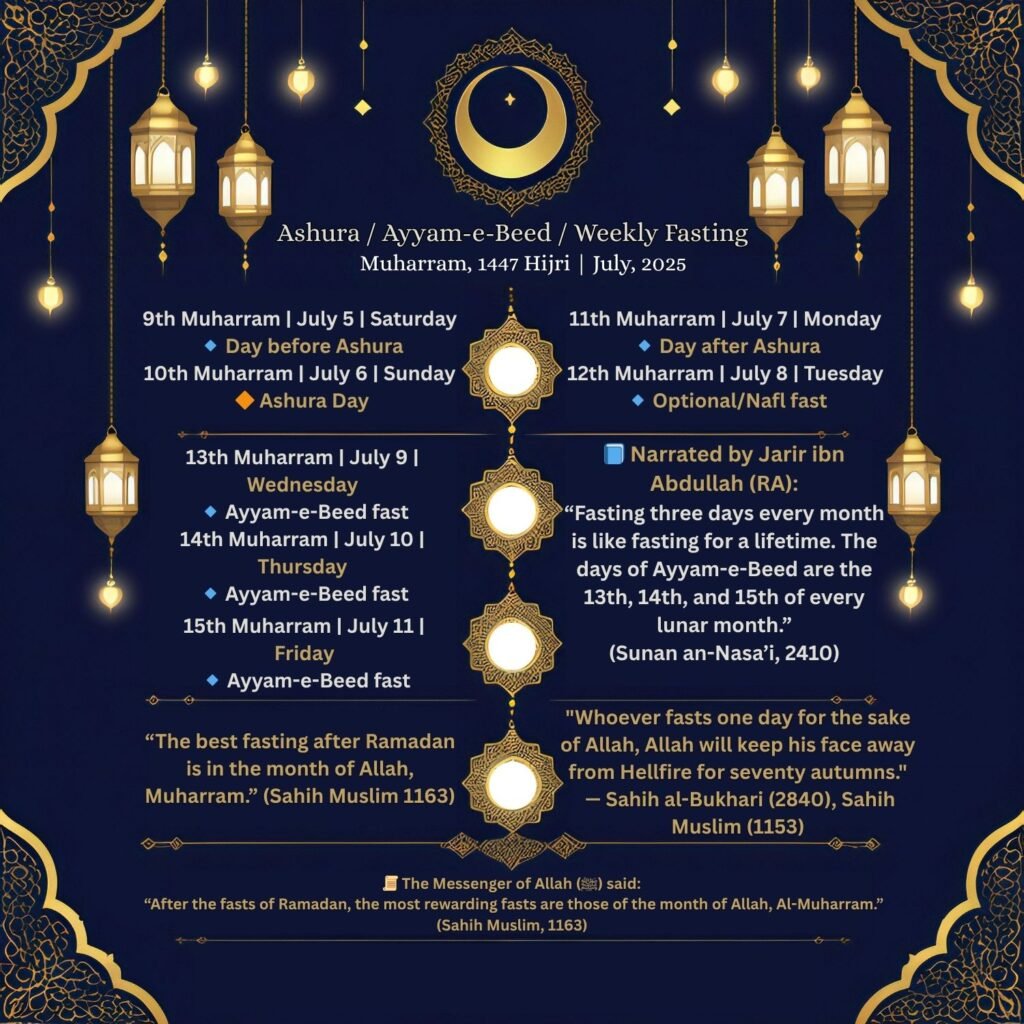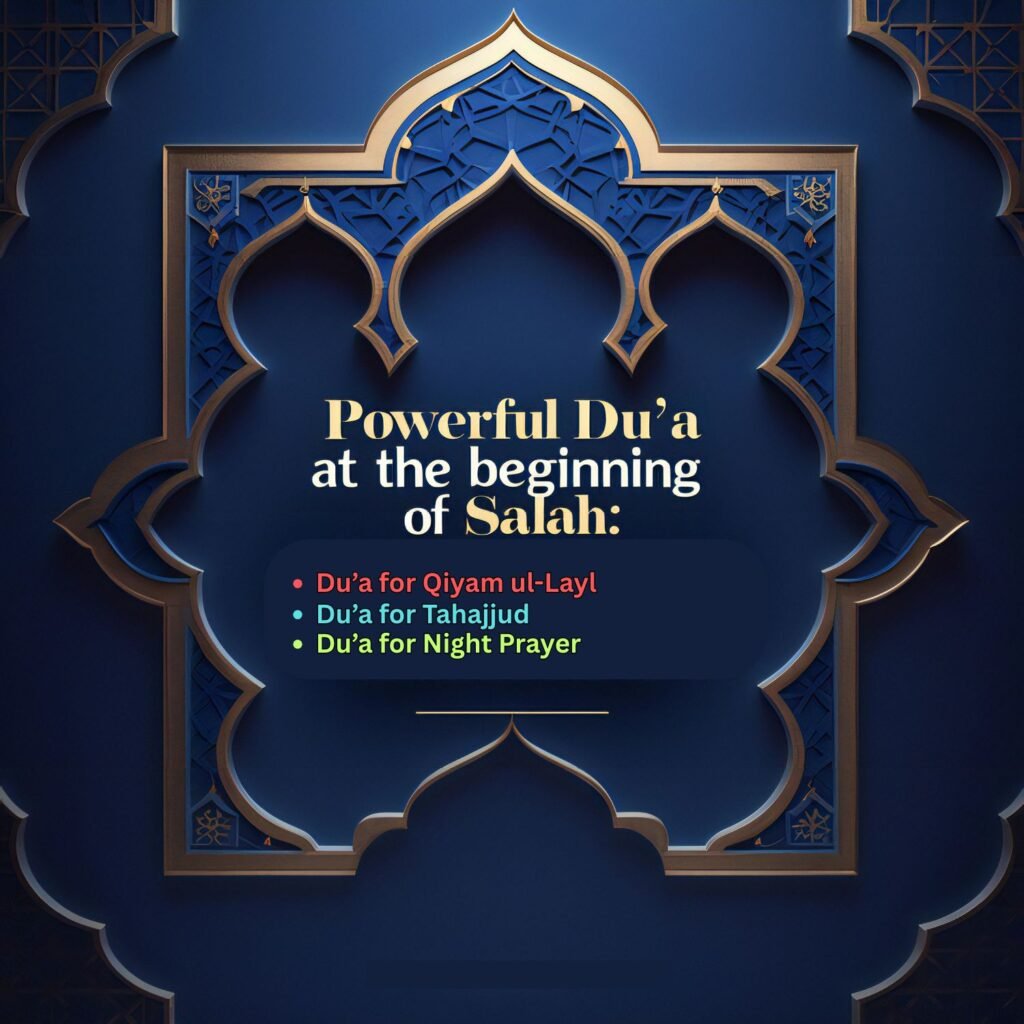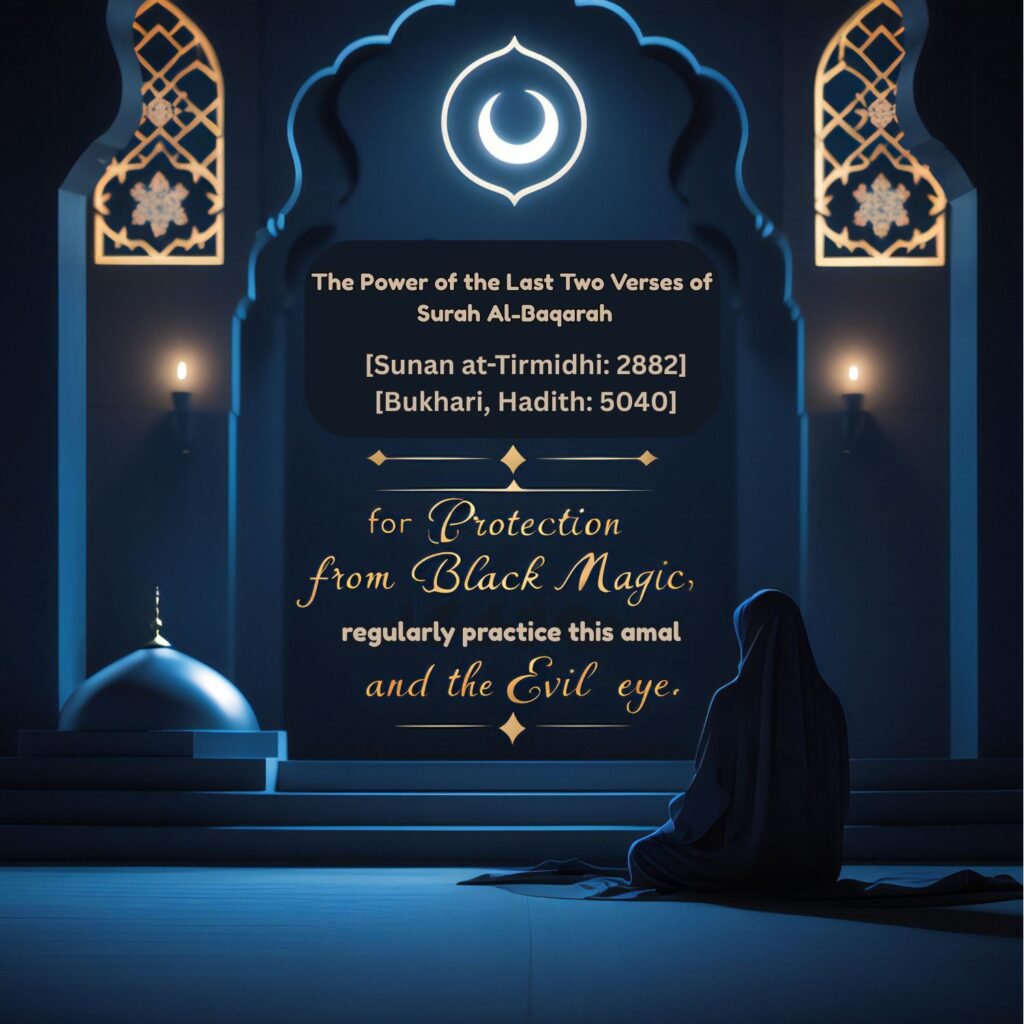Dua for Wearing Clothes
اَلْحَمْدُ لِلّٰهِ الَّذِيْ كَسَانِيْ هٰذَا (الثَّوْبَ) وَرَزَقَنِيْهِ مِنْ غَيْرِ حَوْلٍ مِنِّيْ وَلَا قُوَّةٍ
All praise is for Allah who has clothed me with this (garment) and provided it to me without any power or might from myself.
Alhamdu lillahil-ladhi kasani hatha (ath-thawba) wa razaqanihi min ghayri hawlin minni wa la quwwatin
The Messenger of Allah (ﷺ) said, “If anyone says this when putting on a garment, all his past and future sins will be forgiven.”
This hadith has been recorded by all the compilers of Sunan except An-Nasa’i. Abu Dawud, no. 4023; At-Tirmidhi, no. 3458; Ibn Majah, no. 3285. Shaykh Al-Albani graded it Hasan. See Irwa’ al-Ghalil, 7/47.
Dua for Wearing New Clothes
اَللّٰهُمَّ لَكَ الْحَمْدُ اَنْتَ كَسَوْتَنِيْهِ، اَسْاَلُكَ مِنْ خَيْرِهٖ وَخَيْرِ مَا صُنِعَ لَهٗ، وَاَعُوْذُ بِكَ مِنْ شَرِّهٖ وَشَرِّ مَا صُنِعَ لَهٗ
O Allah! All praise and thanks are for You. You are the One Who has clothed me with this. I ask You for its goodness and the goodness for which it was made, and I seek refuge in You from its evil and the evil for which it was made.
Allahumma laka al-hamdu anta kasawtaniihi. As’aluka min khayrihi wa khayri ma suni‘a lahu. Wa a‘udhu bika min sharrihi wa sharri ma suni‘a lahu.
Abu Dawud, No. 4020; Tirmidhi, No. 1767; Baghawi, 12/40; see Mukhtasar al-Shama’il by al-Albani, p. 47.
Mu‘adh ibn Anas (رضي الله عنه):
The Messenger of Allah (ﷺ) said:
حَدَّثَنَا سُلَيْمَانُ بْنُ حَرْبٍ، قَالَ حَدَّثَنَا شُعْبَةُ، عَنْ وَاصِلٍ الأَحْدَبِ، عَنِ الْمَعْرُورِ، قَالَ لَقِيتُ أَبَا ذَرٍّ بِالرَّبَذَةِ، وَعَلَيْهِ حُلَّةٌ، وَعَلَى غُلاَمِهِ حُلَّةٌ، فَسَأَلْتُهُ عَنْ ذَلِكَ، فَقَالَ إِنِّي سَابَبْتُ رَجُلاً، فَعَيَّرْتُهُ بِأُمِّهِ، فَقَالَ لِيَ النَّبِيُّ صلى الله عليه وسلم “ يَا أَبَا ذَرٍّ أَعَيَّرْتَهُ بِأُمِّهِ إِنَّكَ امْرُؤٌ فِيكَ جَاهِلِيَّةٌ، إِخْوَانُكُمْ خَوَلُكُمْ، جَعَلَهُمُ اللَّهُ تَحْتَ أَيْدِيكُمْ، فَمَنْ كَانَ أَخُوهُ تَحْتَ يَدِهِ فَلْيُطْعِمْهُ مِمَّا يَأْكُلُ، وَلْيُلْبِسْهُ مِمَّا يَلْبَسُ، وَلاَ تُكَلِّفُوهُمْ مَا يَغْلِبُهُمْ، فَإِنْ كَلَّفْتُمُوهُمْ فَأَعِينُوهُمْ
“Whoever puts on a garment and says: ‘Al-hamdu Lillah illadhi kasani hadha’th-thawba wa razaqanihi min ghayri hawlin minni wa la quwwah’ (Praise be to Allah Who has given me this garment to wear and provided it for me with no strength or power from myself), his past and future sins will be forgiven.”
(Sunan Abu Dawud, No. 4023; graded Sahih by Ibn Hajar and Al-Albani)
Hadith Related to Cloths:
Ma‘rūr (RA) narrated:
He said: Once I met Abū Dharr (RA) at a place called Rabadhah. At that time, he was wearing a pair of clothes (a lower garment and an upper garment), and his servant was also wearing exactly the same kind of pair of clothes. I asked him about the reason for this, and he said: Once I abused a man and shamed him regarding his mother. Then the Messenger of Allah (ﷺ) said to me, “Abū Dharr! You shamed him regarding his mother? Indeed, you are a man in whom there is still a characteristic of the Days of Ignorance. Be aware! Your slaves are your brothers. Allah the Exalted has placed them under your authority. So whoever has his brother under him, let him feed him from what he eats and clothe him with what he wears. Do not burden them with tasks beyond their strength. If you do assign them a difficult task, then you must help them with it.”
(2545, 6050; Muslim 27/10 Hadith 1661; Musnad Ahmad 21488) (Adhunik Prakashani: 30, Islami Foundation: 30)
Sahih al-Bukhari, Hadith No. 30
Hadith Status: Sahih
Read more: freeislamicimage.com
Collected








